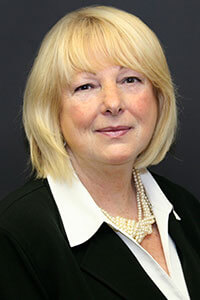
A new Chicago law creating additional requirements for pharmaceutical representatives doing business with health-care professionals could cause issues for medical meetings.
Pat Schaumann has a deep appreciation for the increasing level of complexity in medical meeting compliance. As the president of MEDmeetings IQ and author of Breaking the Code to Healthcare Compliance — which is set for a fourth edition printing later this year — she has kept her finger on the pulse of the rapidly evolving landscape of medical meetings. While the Sunshine Act in 2010 looms large on the timeline of increased transparency in health care in the U.S., the past five years have seen the worldwide spread of more laws.

Pat Schaumann
“In 2014, there may have been 25 countries with some type of health-care regulation,” Schaumann said in the PCMA webinar “Medical Meetings Update: Trends and Changes Affecting Our Industry.” “Now, there are 88. It is not a trend. It is not a fad. It is not going away.
“These changes [in regulations] can happen weekly,” she added. “It’s hard to stay on top of these.”
For Schaumann, though, it’s not the growing list of countries that are scrutinizing the pharmaceutical industry that is her biggest concern. Instead, she believes that a law in Chicago has the potential to lead to a troubling trend. The Windy City now requires that pharmaceutical representatives obtain a license if they do business with local health-care professionals for 15 or more days per year. They also must submit a large chunk of information on the health-care professionals they contact, the location and duration of meetings, the drugs they’re representing, any transfers of value, and more. “This one,” Schaumann said, “scares me more than anything.”
The city launched the law in 2017. In a release about the license requirements, Chicago’s Department of Public Health and its Department of Business Affairs said that effort was part of a push to stop deceptive marketing and curb addiction to opioids. Any attempt to combat the country’s crippling opioid epidemic seems like a move in a positive direction, but Schaumann pointed out that another layer of regulation can lead to significant compliance challenges. “What frightens me about this is the complication of every country doing it differently,” Schaumann said. “Now, we have about nine states that have some different laws, and now, we have a city popping up.”
Philadelphia was close to following Chicago’s lead with a similar piece of legislation that would require licenses for pharmaceutical companies; however, the bill was defeated. Members of the Philadelphia travel community, concerned about the potential for that law to have a negative impact on convention business, played an active role in lobbying against it.
While the potential for city ordinances is Schaumann’s biggest fear, there are plenty of other complications for medical conventions and trade shows. Watch the complimentary webinar At PCMA.
